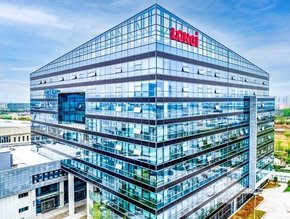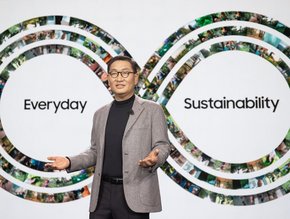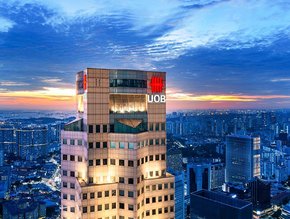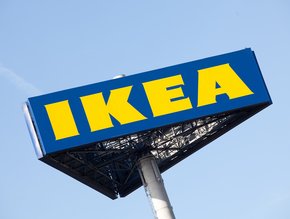Why employee wellbeing is dominating Asia Pacific

When it comes to employee benefits, supporting physical and emotional health is top priority for most employers. That’s according to a recent Willis Towers Watson’s report, 2020 Restoring Stability survey – Pay, Benefits, Wellbeing, which surveyed 746 employers across 15 APAC market regions, and which revealed that 49 per cent of employers have made or are making changes to their programmes in light of the pandemic.
Unsurprisingly, a focus on health and wellbeing is a priority for HR leaders, with the majority of firms prioritising enhancing wellbeing programmes (40%), followed by healthcare benefits (23%), voluntary benefits, perks or discount schemes (17%) and annual leave (14%). And it is in the markets of Hong Kong, India, Malaysia, Singapore, Thailand and the Philippines where mental health is particularly prioritised with more organisations in these regions stating that wellbeing programmes are one of the most important benefits they can offer their employees this year.
In particular, two in five Asia Pacific employers expect to enhance mental health services and stress/resilience management, while a quarter will prioritise providing access to affordable and high-quality mental health solutions in their strategies.
Health benefits remain key
The reality is that COVID-19 has catalysed a new era, accelerating the shift from ‘traditional’ group insurance cover to employee health benefits characterised by health technology and a wider definition of wellbeing – that encompasses not just physical health, but increasingly mental health too. As businesses work to regain their footing post-pandemic, HR leaders will be looking to reshape company offers, adapting health, wellness and benefits programmes and perks with the delivery of everything from enhanced sick leave and financial assistance, to adjusted hours of operation, childcare provisions and mental health support.
Mental health support in focus
Even before the pandemic, prevalence of mental health had become a common workplace issue, leading HR managers to introduce wellness programmes into its benefit packages and insurers to deliver such policies.
Just a few months prior to the onset of COVID-19 in Asia, insurance giant AXA unveiled the first employee mental healthcare scheme in the market, AXA Mind Health Programme, offering Hong Kong corporates a comprehensive, one-stop mental health support package for their employee benefits’ portfolio.
In the wake of the pandemic and its aftermath (a recent global study by Qualtrics and SAP revealed that 67% of respondents were experiencing heightened stress levels) and as workplaces adjust to the ‘new normal’ and the struggles that come with it, more organisations in Asia Pacific are recognising the value of mental health and emotional wellbeing programmes on worker engagement and productivity.
“If there’s a positive to come from COVID-19 and its impact on workforces,” states Neil Narale, health leader at Singapore employee benefits agency Mercer Marsh Benefits, “it’s that traditional stigma associated with employees acknowledging mental health issues and organisations providing pathways to better mental health is improving… [and] mental health is increasingly being recognised as an equally important factor to physical health and wellbeing in a productive and healthy workforce”.
More APAC businesses are committing to wellbeing-focused employee perks, from telehealth benefits to virtual self-care services. Take elevator company Otis Asia Pacific, which in light of the pandemic has made a commitment to revisiting its medical insurance package so that it covers mental health benefits too.
“The pandemic has led to a much higher level of employee anxiety and stress, so most employers are focused on promoting or enhancing their current wellbeing programmes,” states Pheona Chua, regional senior consultant, corporate health & wellbeing, Asia and Australasia, Willis Tower Watson. “More than half of the companies we surveyed plan to prioritise access to high quality mental health solutions for their employees [in 2021].”
Such numbers are reflected in Pacific Prime’s Global Employee Benefits Trends 2020 report, which surveyed firms in Hong Kong, Shanghai, Singapore, Cebu and Bangkok, among others. While 34 per cent of businesses have already introduced additional private mental support, 44 per cent have started to provide professional mental health support, and 35 per cent have introduced extra physical or mental training sessions.
“Increasingly, companies are offering programmes that help employees monitor and reduce their stress levels, provide apps to assist with relaxation and sleep, and hold workshops on emotional resilience,” states Pacific Prime’s CEO, Neil Raymond. “Employers are also progressively using telehealth programmes to provide mental health counselling and are more willing to offer counselling sessions through EAPs (emotional assistance programmes).”
Promisingly, major markets in the Far East have introduced a broader range of offerings post-COVID-19, chief among them psychological health benefits, states a recent Willis Towers Watson survey of HR leaders across China, Hong Kong, Singapore and Taiwan. In Taiwan, almost two in five employers have introduced free psychological counselling services to support employee wellbeing during the outbreak, while 12% of companies in Singapore have done so.
RedDoorz, a Singapore-based budget hotel booking platform has launched a mental health support programme (Hope Hotline) providing online counselling sessions via partner counsellors and psychologists to its employees, hotel partners and their staff across Singapore, Indonesia and the Philippines. CEO Amit Saberwal wanted to “play an active role by helping [employees] embrace the new normal more easily” and hopes the counselling sessions “will provide much needed relief, and spread positivity and optimism”.
Accessible to its 170,000 employees in Asia Pacific, Unilever has unveiled a 14-day mental wellbeing resilience programme, which utilises tools created by the Resilience Research Center to cover a wide range of topics, including dealing with negative thoughts; while EY Global’s APAC employees located in Sydney, Bangkok, Hong Kong, Beijing and New Delhi, can participate in daily workouts online through the EY Exercise programme as well as attend online seminars covering topics like nutrition and sleep.
In addition to wellbeing programmes, businesses are considering and trialling other employee perks, from flexible hours to continued remote working, that take into consideration the demands of the pandemic and subsequent working habits, with a focus on promoting work-life balance.
More than half (52%) if Asia Pacific firms surveyed (Willis Towers Watson Restoring Stability) have already begun offering flexible work hours to allow employees to tend to childcare or older relatives, while the ultimate in employee perks, Unilever Zealand has introduced a year-long trial of four-day weeks to see if it can “bring material change in the way [employees] work”, states MD Nick Bangs.
Wellbeing proliferates
Driven by corporate demand, insurers and employee perk firms are already rolling out coverage for mental health conditions and initiating wellness plans. Recognising that companies will continue to encourage workspace flexibility, Chubb Asia Pacific has launched its Work from Home (WFH) Insurance, the first such product in APAC, which allows employers to meet the health, safety, and wellbeing needs of their employees whilst working remotely.
Designed to “meet the evolving employee care and benefit needs”, according to Chubb Asia-Pacific’s deputy head of regional accident & health, Ben Howell, the policy boasts among its features a mental health benefit for the psychological counselling of employees diagnosed with stress disorders due to working from home.
A further new Mental Wellness Plan, recently launched by insurer Aviva Singapore and employee benefits consultancy Mercer Marsh Benefits, offers corporate clients cover for outpatient psychiatric and psychologist services; while two Singapore startups have successfully unveiled mental health enterprise platforms designed for employers to utilise as a staff benefit. While mental health app Intellect supports users with a range of interventions, digital mental health provider Safe Space, now has a presence in six Asia Pacific countries, offers three tiers of service for corporates, from giving employees access to self-help resources, to letting corporates top up digital wallets so staff can attend counselling sessions to offering corporates curated employee programmes.
“Workplace mental well-being will be one of our top priorities going into 2021,” states Safe Space founder Antoinette Patterson. “Safe Space’s vision is to make digital mental healthcare and education accessible and comprehensive to businesses of all sizes, from startups to MNCs.”
- Why proactive employee wellbeing is more important than everLeadership & Strategy
- Flexible work improving mental health in Australia – reportHuman Capital
- COVID-19: AXA Hong Kong prioritises mental health benefitsHuman Capital
- NAB respond to mental health challenges with new programHuman Capital






